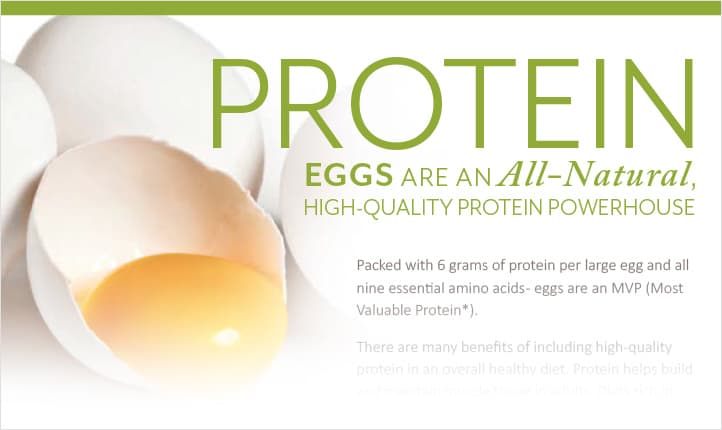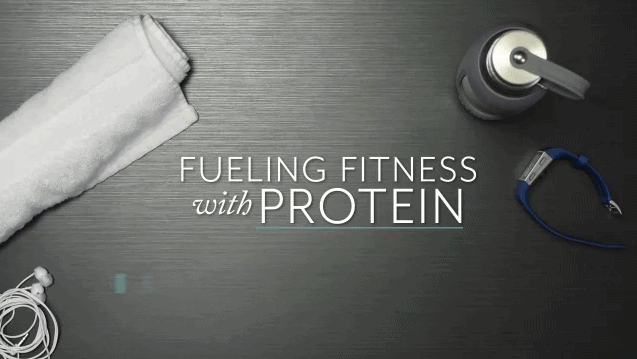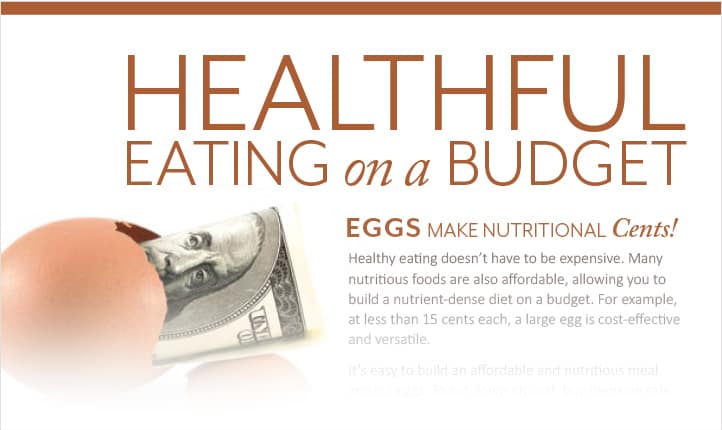Egg Nutrition

INCREDIBLY NUTRITIOUS
Eggs are an all-natural, nutrient dense source of high-quality protein. Each large egg contains six grams of protein and is a good or excellent source of eight essential nutrients all for just 70 calories. Because of their nutrient content, eggs can play a role in weight management, muscle strength, brain function, eye health and more.

HIGH-QUALITY PROTEIN
Dietary protein quality is determined by its amino acid composition, and how well the body digests and uses the amino acids. Egg proteins are easily digested and contain all of the essential amino acids.

FITNESS
Nutrition is an important aspect in physical performance. The high-quality protein in eggs is essential for building and maintaining muscle mass.

HEALTHFUL EATING ON A BUDGET
Good nutrition is vital for overall well-being. Eggs are a very affordable, high-quality source of protein.
Did you know?
- EGGS ARE SALAD’S BFF
-
Nutrition research revealed that eating eggs with salad increases absorption of vitamin E by seven times.* Additionally, the same researchers at Purdue University published another study showing the absorption of carotenoids from a salad was improved by adding a cooked egg. These results are unsurprising because both vitamin E and carotenoids are fat-soluble nutrients, hence the fat in the eggs enables their absorption.
Interestingly, the researchers also found that just adding a couple tablespoons of fat-containing dressing, does not have the same effect on nutrient absorption as the addition of the egg. Bottom line — put an egg on it!
*Reference: Kim JE, Ferruzzi MG, Campbell WW. Egg Consumption Increases Vitamin E Absorption from Co-Consumed Raw Mixed Vegetables in Healthy Young Men. J Nutr. 2016;146:2199-2205.
- EGG WHITE VS. EGG YOLK NUTRITION
-
The white portion of one large egg contains 3.6 grams of protein and 17 calories. The yolk contains 2.4 grams of protein and 53 calories. However, the majority of an egg’s essential vitamins and minerals are in the yolk, including choline, selenium and the antioxidants, lutein and zeaxanthin. Egg yolks also contain 4.5 grams of fat per large egg, most of which is unsaturated. In addition to the traditional nutrition components, there are a number of bioactive compounds in the yolk, many of which have yet to be characterized. And, in case you’re wondering…yes, egg yolks are a natural source of dietary cholesterol—however scientific research has shown little or no effect between dietary cholesterol and heart health.
- SO, DON’T DITCH THE YOLK!
-
- The majority of essential vitamins and minerals are in the egg yolk, including choline, selenium, and antioxidants, lutein and zeaxanthin.
- Nearly half an egg’s protein (43%) is found in the yolk.
- Egg yolks carry fat-soluble nutrients like vitamins D, E and A. Plus, the fat, which is mostly unsaturated and found in the egg yolk, aids in the absorption of these essential and important egg components.
- Eggs are one of the only foods that naturally contain vitamin D.
